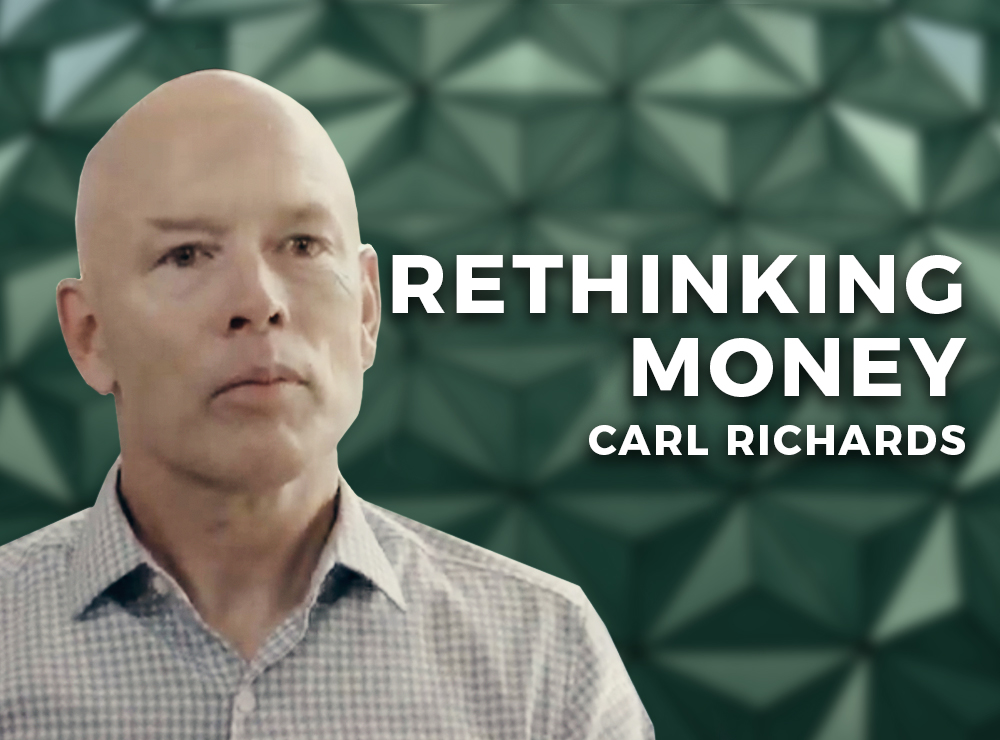
CARL RICHARDS is an expert on money-related behaviour and on how to avoid the costly mistakes that people commonly make.
In this series, we’re asking him about different aspects of money, and how we can modify our behaviour to enjoy a greater sense of financial wellbeing.
This time he explains the key to controlling your spending.
TEBI: In your experience, how big a problem is it for people to budget properly and control their spending?
CR: Controlling your spending is a massive problem, because nobody’s taught us how to do it, and we’re hard-wired to do things that are against our own self-interest. We’re hard-wired to get instant gratification. So we see something and we want it. Combine instant gratification with Instagram and you’ve got a problem.
I think the best way to solve it is to stop thinking about budgeting as a constraint. Stop thinking about it as a stick to beat yourself up, and start thinking of it as a simple tool for awareness.
I say you should just take three seconds after you spend money, and just notice what you did. No shame, no blame. Don’t try to make a change. The only goal is to notice what you did. That awareness will drive behaviour change without you really focusing on the behaviour change.
In your experience, is there any correlation between how much money people earn and the extent to which they struggle to control their spending?
In my experience, I haven’t seen a correlation between the amount of income somebody earns and their ability to be good with their money. Just because you make a lot of money, that doesn’t mean you know how to take care of it. In fact there’s a lot of people who are “big hat, no cattle”. High income and high lifestyle creep is a huge problem.
You come out of college and you get used to living on £25,000 a year. Then you get a raise, and the first thing you do is match your lifestyle to your new income — and probably a little bit more with some debt. And then you keep doing that.
The key is just to fight against that lifestyle creep. So as your income goes up, make sure your lifestyle doesn’t, and get a little bit more aware.
But we lead busy lives and it’s easy to lose track of exactly what we’re spending. What advice would you give to people on that?
One of the things I try to do myself every so often, to increase my awareness around my spending and change my own behaviour, is simply write it down. There are a couple of ways you could do it.
One is like this. When I set up my credit card, I opted to get a text message every time I spent money. It was a “high spend” alert, but you can set the number, so I set it for a dollar! Every time something over one dollar was spent, I would get a text. Just commit to reading the text.
Another way to do it would be to carry a three-by-five index card in your pocket, and whenever you spend, write it down. Or make a note of it on your phone. All you’re doing is saying, “I just spent £7.50 on a sandwich”. Do that for 30 days and I think you’ll be shocked at what you learn.
The language around spending is often quite negative. Is it a positive or a negative thing to get annoyed with yourself?
With our use of money, there’s this tendency for us to feel shame. I think shame is the right word. It happens in particular around spending, but also mistakes we make with our investments. We say, “Oh, how stupid I was.”
Brené Brown’s work around shame is really powerful. As Brené says, shame plays no useful role. “Look how stupid I am” — that’s shame. “Look how stupid that was” is different. I’m internalising the mistake with one, and with the other I’m recognising it.
I think when we get frustrated, we need to realise it’s normal. It’s what humans do to ourselves. And then just give yourself a break!
Start committing to ignore all that noise around shame and blame and guilt. Ignore all of that! Start working with what you have and just bring awareness to it. This is the crux of the problem.
Move away from shame and guilt towards awareness. When you start to feel frustrated, just notice it like you would a “low petrol” warning on the dashboard.
Instead of being frustrated, say, “Oh, that’s interesting, look what I did here.” By just bringing awareness to it, things will change.
Also in this series:
Don’t judge people based on money
WHAT TO READ NEXT
Here are some more articles we think you’ll find interesting:
An investment lesson from the US election
Four financial priorities for young adults
What good investing and winemaking have in common
There is such a thing as too much choice
FIND AN ADVISER
The evidence is clear that you are far more likely to achieve your financial goals if you use an adviser and have a financial plan.
That’s why we’re trialling a new service called Find an Adviser.
Wherever they are in the world, we will put TEBI readers in contact with an adviser in their area (or at least in their country) whom we know personally, who shares our evidence-based investment philosophy and who we feel is best able to help them. If we don’t know of anyone suitable we will say.
We’re charging advisers a small fee for each successful referral, which will help to fund future content.
For compliance reasons, this service is currently unavailable to readers in the US.
Need help? Click here.
© The Evidence-Based Investor MMXX









